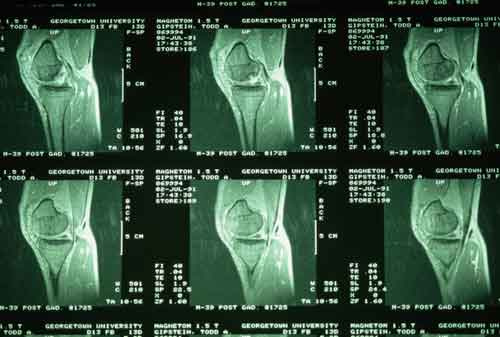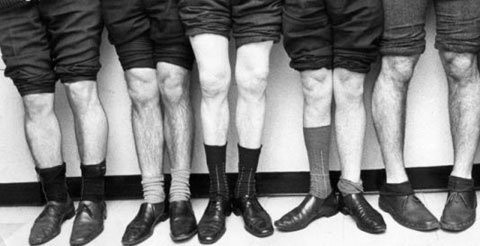The knee can identify the person who replaced the fingerprint
US researchers claim that the knee can provide reliable biometric signals, which help identify people exactly like fingerprints.
>>>Biological identification: a piece of hair is enough "to take pictures"
An American team found that the kneecap in each person's knee is unique. They can provide a new way to identify people at airports or other security checkpoints.
The researchers said that the initial series of tests with magnetic resonance imaging (MRI) kneecap at the knee reached 93% accuracy.

Results of MRI scan showed that the shape of the kneecap was in
Everyone's knees are unique. (Photo: Corbis)
According to computer expert Lior Shamir of Lawrence Technological University in Michigan (USA), the system can be the perfect means for quick registration and identification of people moving through checkpoints in the field. flying or entrance to offices or offices.
Shamir and his colleagues believe that the knee patella inspection system is also harder to fool if the subject doesn't undergo major surgery.
'The deliberate deception requires a complicated medical procedure and deep intervention, so the method of scanning knee kneecap is better against tampering than other methods of identification, face use , fingerprints and iris , " said Shamir.

Researchers believe that the identification of the kneecap image is
knees are harder to forge than other methods. (Photo: Daily Mail)
The researcher further explained that contact lenses could be used to fool iris recognition systems; ID cards and passports can be fake. Meanwhile, the MRI scan method not only avoids the health risks from scanning images with ionizing radiation (such as X-rays), but also avoids part of the privacy problem due to the The terahertz scanner "penetrates" the human body through clothing.
However, the current challenge for Mr. Shamir's research team is to develop a faster and more compact MRI imaging technology to be able to install devices using this identification method at airports and pinpoints. security check.
- USB Flashdrive fingerprint recognition
- Fingerprint recognition for 30 minutes
- Develop 'universal' fingerprints, unlock all phones
- Causes and treatments for knee pain in the elderly
- Touch screen fingerprint recognition
- Fingerprint - biological identity
- Technology of 2015: Fingerprint sensor
- What is fingerprint sensor? What effect does it have on iPhone 5S
- Does fingerprint change over time?
- Fingerprint lock
- Will fingerprints change after we die? The answer surprised everyone!
- Laparoscopic knee surgery
 Green tea cleans teeth better than mouthwash?
Green tea cleans teeth better than mouthwash? Death kiss: This is why you should not let anyone kiss your baby's lips
Death kiss: This is why you should not let anyone kiss your baby's lips What is salmonellosis?
What is salmonellosis? Caution should be exercised when using aloe vera through eating and drinking
Caution should be exercised when using aloe vera through eating and drinking